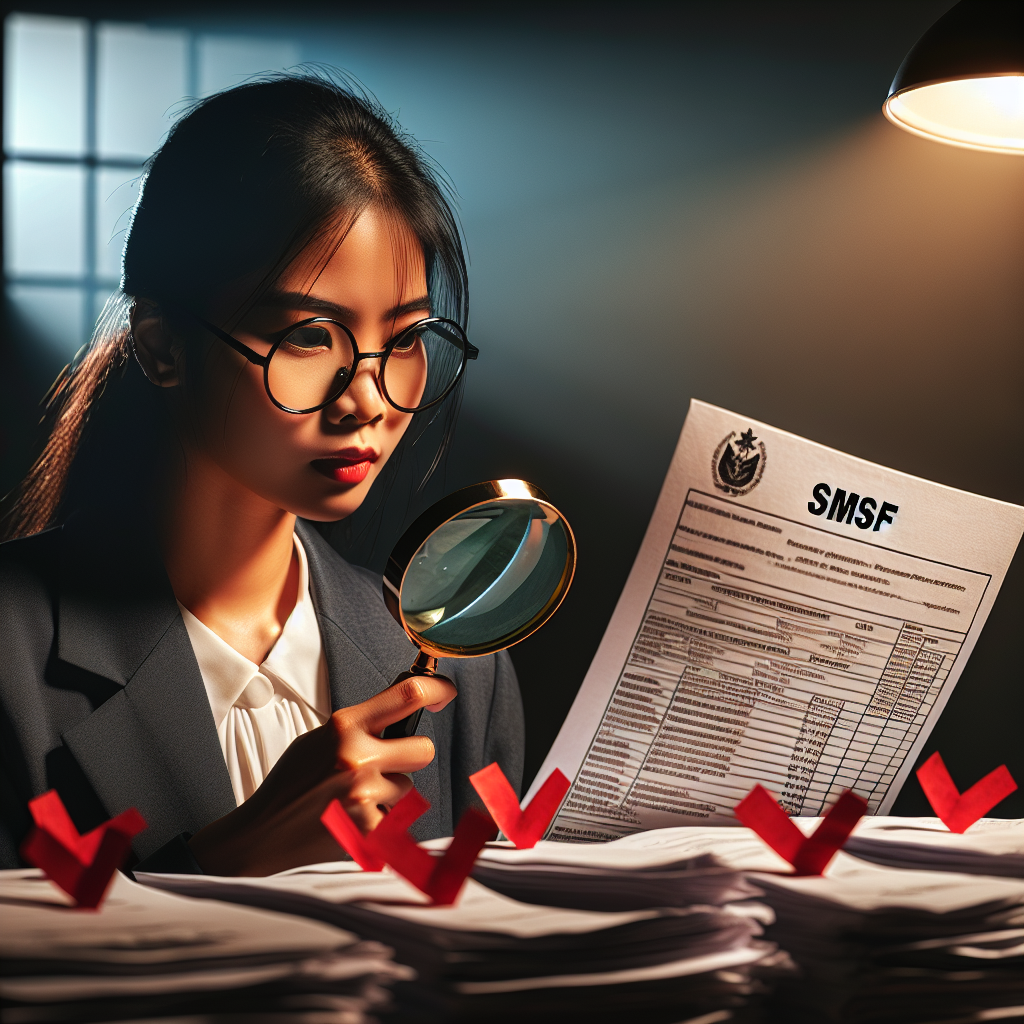Self-Managed Super Funds (SMSFs) have become increasingly popular among Australians looking to take control of their retirement savings. With over 600,000 SMSFs currently operating nationwide, it’s clear that many investors appreciate the flexibility and investment freedom these structures provide. However, this freedom comes with significant responsibilities – particularly when it comes to reporting requirements.
The appeal of SMSFs is undeniable. They offer greater investment choice, potential tax benefits, and the ability to create tailored retirement strategies. You can invest in residential property, commercial real estate, direct shares, and even certain collectibles that traditional super funds simply don’t allow. This level of control is precisely why many business owners, property investors, and savvy professionals choose the SMSF path.
But here’s the reality that many trustees discover too late: with great control comes great responsibility. SMSF reporting requirements are stringent, complex, and absolutely non-negotiable. Missing a critical deadline isn’t just an administrative hiccup – it could potentially cost you thousands in penalties, compromise your compliance status, and even threaten the tax concessions that make super such a powerful wealth-building vehicle.
Understanding SMSF Annual Return Requirements
At the heart of your SMSF compliance obligations sits the SMSF Annual Return (SAR). This crucial document is far more than just a tax return – it’s a comprehensive report that satisfies multiple regulatory requirements in one submission.
The SAR includes:
– Member contribution information
– Regulatory compliance statements
– Fund asset valuations
– Member balance reporting
Unlike personal tax returns, SMSF annual returns have different lodgment deadlines depending on your circumstances. For most SMSFs working with a tax agent, the deadline is May 15th each year. However, newly registered funds generally need to lodge by February 28th following their first financial year. Self-preparers (trustees who complete their own returns) face an earlier October 31st deadline.
Let’s consider a real-life scenario: Michael and Sarah established their SMSF in July 2024, excited about purchasing an investment property. Focused entirely on finding the right property and securing financing, they overlooked their reporting obligations. By the time they realized they’d missed their February 28th deadline for their first annual return, they were already facing failure to lodge (FTL) penalties of $222 per 28-day period, potentially accumulating to thousands.
“We see this situation frequently,” notes a senior SMSF specialist. “New trustees are often so focused on investment strategy that compliance requirements take a backseat. Unfortunately, the ATO has little sympathy for missed deadlines, regardless of the reason.”
Beyond the annual return, SMSF trustees must also be aware of other critical reporting requirements:
- Transfer Balance Account Reporting (TBAR) – Required when members start a pension or make significant changes to their retirement phase accounts
- Member contribution reporting – Tracking and correctly categorizing all contributions
- Quarterly Business Activity Statements (BAS) – Required if your SMSF is registered for GST
- Event-based reporting – Necessary when certain events occur that impact members’ transfer balance accounts
Each of these requirements has its own deadlines and specifications. Failing to meet any of them can trigger a cascade of compliance issues that become increasingly difficult and expensive to resolve.
The High Cost of Non-Compliance
The Australian Taxation Office (ATO) takes SMSF compliance very seriously – and with good reason. SMSFs collectively manage over $700 billion in retirement assets, making them a significant component of Australia’s retirement system. To maintain the integrity of this system, the ATO has implemented strict enforcement measures for non-compliant funds.
The penalties for missing SMSF reporting requirements can be severe:
- Failure to lodge (FTL) penalties – Starting at $222 per 28-day period (up to a maximum of $1,110 for individuals and $5,550 for large entities)
- Administrative penalties – For specific breaches, ranging from $4,500 to $12,600 per offense
- Loss of tax concessions – In severe cases, your fund could be deemed non-compliant, resulting in a tax rate of 45% on your fund’s income
- Legal action – For serious or repeated non-compliance
- Forced wind-up – The ATO can direct trustees to close non-compliant funds
Consider the case of a property-focused SMSF that failed to lodge returns for three consecutive years. Not only did they accumulate over $10,000 in direct penalties, but the ATO also removed their fund’s complying status, resulting in an additional tax bill exceeding $75,000. What began as simple administrative oversight ended in financial disaster.
“The most expensive mistake SMSF trustees make is thinking compliance is optional or can be handled ‘later’,” explains an industry expert. “By the time many trustees realize the severity of their situation, they’re already facing penalties that could have funded their retirement lifestyle for several months.”
Beyond direct financial penalties, non-compliance creates additional problems:
- Auditor complications – Your independent auditor may issue a qualified report or contravention notice
- Increased scrutiny – The ATO flags non-compliant funds for additional review
- Property investment implications – Non-compliance can jeopardize SMSF property loans and investment strategies
- Personal stress – The psychological burden of ATO investigations shouldn’t be underestimated
This is precisely where professional guidance becomes invaluable. At Aries Financial, we understand that SMSF compliance isn’t just about avoiding penalties – it’s about creating a stable foundation for your retirement investment strategy. Our expertise in SMSF lending and compliance ensures that property investments within your fund remain protected from unnecessary regulatory risks.
The Value of Expert Guidance
While the do-it-yourself approach is central to the SMSF concept, this doesn’t mean you should handle everything alone. In fact, successful SMSF trustees understand that strategic outsourcing of technical compliance aspects allows them to focus on what matters most – making smart investment decisions.
Working with SMSF specialists provides multiple benefits:
- Deadline management – Professionals track and prepare for all reporting deadlines, ensuring timely lodgment
- Technical accuracy – SMSF regulations change frequently; experts stay current with the latest requirements
- Strategic planning – Advance preparation prevents last-minute scrambles and associated errors
- Audit readiness – Professional record-keeping substantially reduces audit stress and complications
- Peace of mind – Knowing compliance is handled properly allows you to focus on investment strategy
At Aries Financial, we believe in empowering SMSF trustees through education and support. Our approach aligns perfectly with the core philosophy of integrity, expertise, and empowerment that drives successful SMSF management.
Consider this perspective from a long-term SMSF trustee: “The annual cost of professional SMSF administration is minimal compared to the potential penalties and lost opportunities from mismanagement. Working with experts doesn’t mean surrendering control – it means enhancing it by removing unnecessary risks.”
For property investors using SMSFs, the stakes are particularly high. Property transactions within super involve complex compliance requirements, from initial purchase through to ongoing management. The limited recourse borrowing arrangement (LRBA) rules alone contain numerous technical requirements that must be precisely followed.
Aries Financial specializes in SMSF lending solutions that complement proper compliance management. Our competitive SMSF loan solutions starting from 5.99% PI are designed specifically for trustees who understand that compliance and strategic investment go hand-in-hand. With fast approvals within 1-3 business days, we help ensure your property investment strategy doesn’t get derailed by unnecessary delays or compliance oversights.
Key Reporting Deadlines Every SMSF Trustee Should Know
To help you stay on track, here’s a quick reference guide to critical SMSF reporting deadlines:
Annual Return Lodgment:
– February 28 – Newly registered SMSFs (via tax agent)
– May 15 – Most SMSFs lodging via tax agents in good standing
Transfer Balance Account Reporting (TBAR):
– Annually – For funds with all members having balances below $1 million
Other Key Dates:
– January 28 – December quarterly Super Guarantee due
– April 28 – March quarterly Super Guarantee due
– Various dates – PAYG installments if applicable to your fund
Proactive calendar management is essential. Many successful trustees work backward from these deadlines, setting internal milestones for gathering documents, completing valuations, and preparing for audits well in advance of actual due dates.
Building a Sustainable SMSF Compliance Strategy
Beyond simply meeting deadlines, truly successful SMSF management requires developing a sustainable compliance approach that integrates seamlessly with your investment strategy. Here’s how to build that foundation:
- Document management system – Implement a simple but effective system for organizing statements, receipts, and compliance documents throughout the year
- Regular reviews – Schedule quarterly reviews of your fund’s activities and compliance status
- Professional relationships – Establish strong working relationships with your accountant, auditor, and financial advisors
- Education commitment – Stay informed about regulatory changes affecting SMSFs
- Clear trustee responsibilities – If your fund has multiple trustees, clearly define who handles which compliance aspects
This structured approach aligns perfectly with Aries Financial’s philosophy of empowering investors through education and strategic support. As Australia’s trusted SMSF lending specialist, we understand that compliance isn’t just about avoiding problems – it’s about creating the stability needed for confident property investment.
Conclusion: Taking Control of Your SMSF Reporting Requirements
SMSF reporting requirements exist to ensure the integrity of Australia’s retirement system and protect the tax concessions that make super such a powerful wealth-building vehicle. Missing critical deadlines isn’t just a technical breach – it could potentially cost you thousands in penalties and jeopardize your retirement plans.
The good news is that with proper planning, professional guidance, and a commitment to ongoing education, SMSF compliance can become a manageable part of your investment strategy rather than a burdensome obligation.
At Aries Financial, we’re committed to helping SMSF trustees navigate both the investment and compliance aspects of fund management. Our expertise in SMSF lending compliance and commitment to fast approvals supports trustees who understand that strategic property investment requires a foundation of proper compliance.
Remember, successful SMSF management isn’t about doing everything yourself – it’s about maintaining control by making informed decisions, including when to leverage expert guidance. By staying informed about SMSF reporting requirements and working with trusted partners, you can maximize your retirement investment potential while minimizing unnecessary risks.
Don’t let compliance oversights cost you thousands. Take control of your SMSF reporting requirements today and build a secure foundation for tomorrow’s financial freedom.


